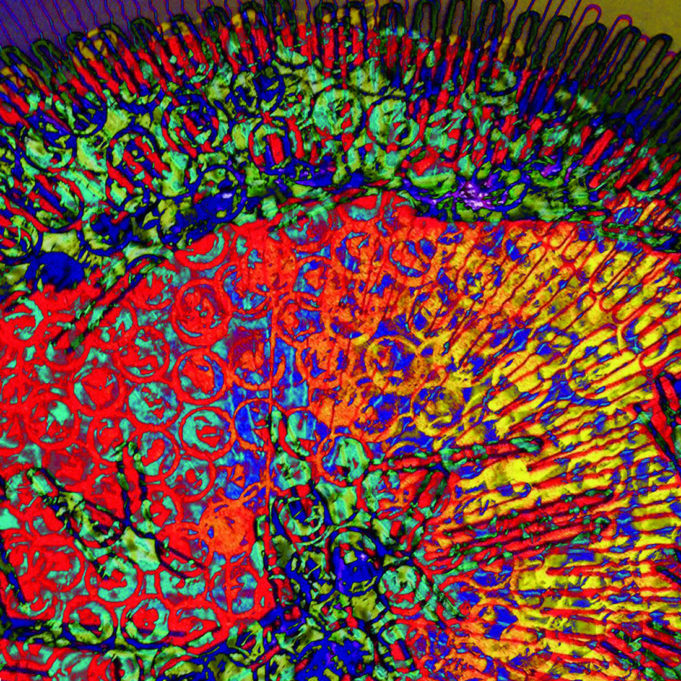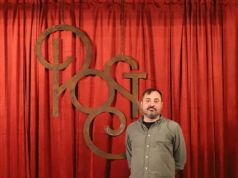They had me at “Arkestra.”
Fort Worth’s Rage Out Arkestra will always tickle me for being named after one of my favorite artists of all time. And all solar systems. Though Sun Ra died in the 1993 after being born in 1914 — on Saturn (!) — his Arkestra lives on. Led by saxophonist Marshall Allen, the band still performs occasionally. The big question is, Are there similarities? Between Rage Out and Sun Ra? The answer: not so much, though this is not necessarily a bad thing. You could almost think that some of what makes Rage Out rage out would have found a home in the spaceman’s latter-day oeuvre, like the Fort Worth ensemble’s polyrhythmic grooves and vibe-enhancing fretwork. I think Sun Ra would be proud.
Though I’ve seen Rage Out Arkestra a couple of times over the years, most recently at Shipping & Receiving Bar, where the ensemble regularly gigged before the pandemic, I can’t say I ever sat down and listened to them. Like the jazz jams at the legendary Black Dog Tavern, a place known very well by most of the guys in Rage Out, it’s always hard to focus on live straight-ahead, occasionally free jazz when there’s beer to be drunk and convos to be had. The background noise comes to the fore when it’s between your ears during a pandemic. Like it’s doing to me right now.
The album that Rage Out released a couple of months ago is, of course, a live recording, this one from a gig at Harvest House in Denton in 2017. Recorded by Zaach Williams and Cameron Ermish, mixed by Taylor Tatsch at his AudioStyles studio outside of Austin (Maren Morris, Cutthroat Finches, Shadows of Jets), and mastered by Clint Niosi at his Orange Otter Audio in Fort Worth, Rage Out’s self-titled full-length is like one long, polyrhythmic groove generously salted with some stellar individual horns, keys, and guitars. Though primarily experiential music, Rage Out’s output rewards a seated, headphones-on listen.
Like in any good groove, the time signature may fall away completely, but the momentum continues surging forward. Going from loud to soft and back again as Rage Out does here is one way to keep the drama ratcheted up, to keep the listener couch-locked. The soloing is mostly tasteful, save for the occasional angry honk or aggressive Coltrane-esque vocalization. From what I remember of Rage Out in person, there’s not a lot of movement onstage, just hands pounding and fingers tickling. Listening to the band on tape, though, it’s like you’re watching fireworks over a raging ocean: Percussionists Eddie Dunlap, Parker Anderson, and Dieudonne Samudio (with special guest Gerard Bendiks) never stop moving, and the brass/woodwinds (Dave Williams, Chris White, and Jerry Smith) explode and dissolve, explode and dissolve, their voices sometimes delightfully sparring but mostly harmonizing — the “Acknowledgement”/A Love Supreme refrain on “The Good Voodoo” is as melancholy as it should be. Aside from a couple of nicely restrained solos, guitarist Darrin Kobetich, scorching bassist Canyon Kafer, and keyboardist Joe Rogers mostly stick to fueling the groove.
The musicians who really get to step out are the brass/woodwinds: Williams, White, and Smith. Their interplay on “Airbell” is like a dance of sorts, and sometimes the hot/cold dynamic between a fiery sax and ethereal, twinkling flute makes for a kind of star-crossed-lovers call and response. White’s trumpet on the Middle Eastern-tinged “Michelle” is perfectly serpentine (and graciously augmented by Kobetich’s Cümbüş, a Turkish instrument that looks like a small banjo but sounds like a sitar).
If, as Sun Ra said, space is the place — and indeed it is — then visit RageOutArkestra.bandcamp.com and soar. — Anthony Mariani
Contact HearSay at hearsay@fwweekly.com.












